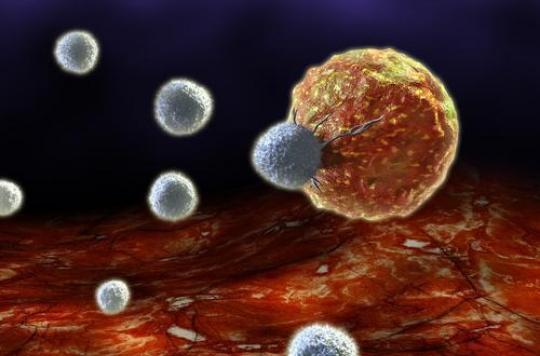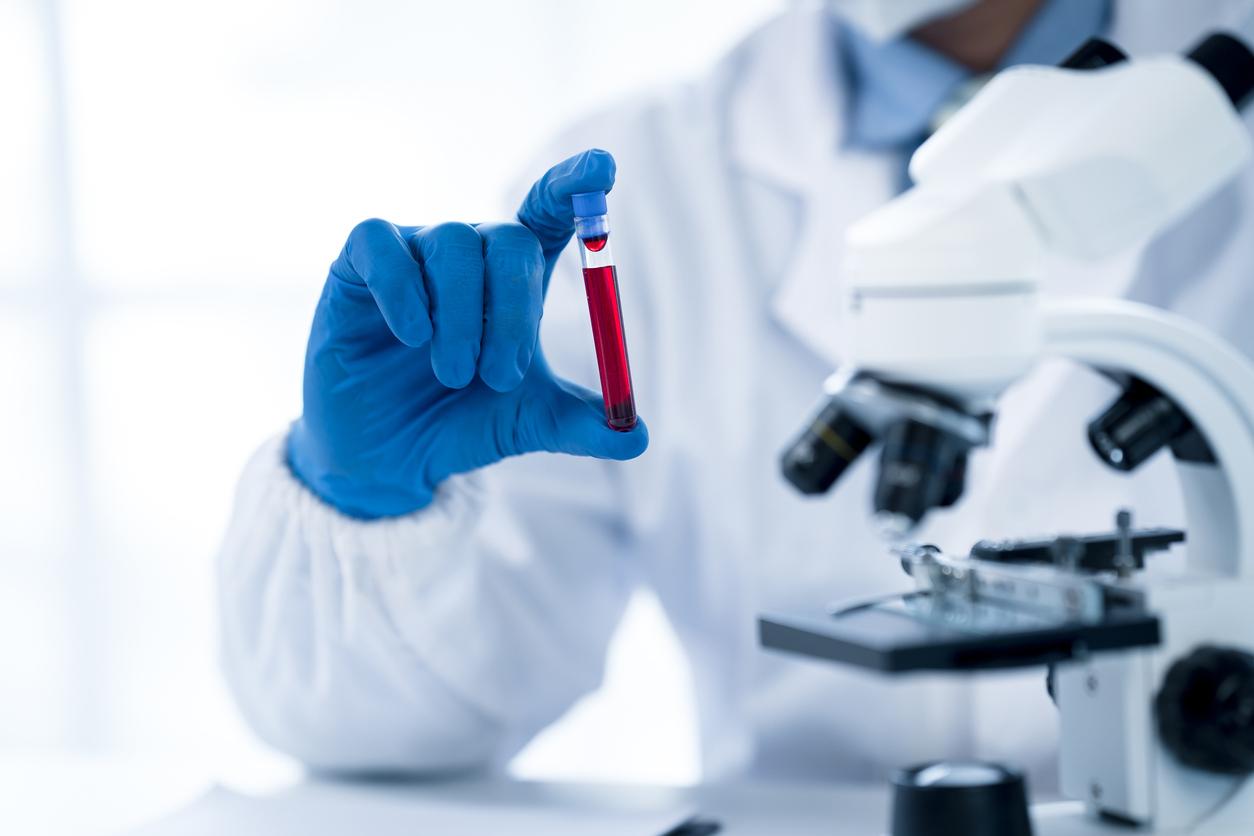Autoimmune diseases are a set of very complicated diseases, treated in rheumatology, dermatology, neurology, gastroenterology and internal medicine. However, they represent the 3rd cause of suffering, after cardiovascular ailments and cancers: our body carries within it its own self-destruction system.

Rheumatologists from all over the world have gathered since this weekend in San Diego, California. Why Doctor, throughout the week, will echo the essential advances that will be unveiled during this congress. In particular, on the treatment of autoimmune diseases, at the origin of most inflammatory rheumatism, such as rheumatoid arthritis which affects 300,000 people in France and strikes at all ages of life, causing heavy repercussions on a daily basis. It is the most frequent inflammatory rheumatism with a progressive, insidious and chronic course.
What do violent rheumatism deforming the hands and feet, inflammation of the intestines, myopathy and multiple sclerosis have in common? A set of diseases that are very different in their presentations and symptoms, but which share the same mechanism: the abnormal overactivity of their defense system, which is called the “immune system”. “Autoimmune diseases” are, in a way, the soldiers of your defense army who turn their weapons against their own camp. A wrong target is the most modern explanation for dozens of sometimes very old diseases.
A defense system that “turns a casaque”
The soldiers of immunity are called white blood cells, inflammation proteins and antibodies. White blood cells specializing in defense against infections, cancer and foreign agents are lymphocytes that are able to “acquire a target” and strike it as soon as it appears. The proteins of inflammation, the “interleukins” are responsible for recruiting other troops, other white blood cells, when the battle is intense. Antibodies are made by certain white blood cells, B lymphocytes, in our blood and act as lookouts. Hordes of antibodies are constantly circulating in our blood and, as soon as a foreign body enters our body, the response is immediate and results in the intruder being identified and digested. A system of struggle so developed that there is a type of antibody for each type of aggressor. If they cannot manage the problem on their own, the antibodies will alert the lymphocytes and these will recruit other white blood cells and amplify the inflammatory reaction to better fight against the intruders.
However, sometimes, and for reasons that are still difficult to understand, but which relate as much to heredity as to the environment, our immune system turns against a target that has always belonged to our body, auto-antibodies are produced and attack this very precise target, but not foreseen because normally belonging to one of our organs. It triggers an autoimmune reaction against that organ first, and then, with its amplification, it will destroy part of our body. From where impressive damage in a few hours, a few days or a few months. The disparity in the diseases that this autoimmune mechanism causes is explained by the diversity of targets which correspond to different organs: joints, skin, kidney, liver, intestine, nervous system….

How can our immune system go crazy?
The first track was to point out our world of opulence, these diseases being much rarer in poor countries: smoking of course, chemicals and pollutants … Genetic factors are also at play since many auto diseases -immunes are associated with a particular tissue group (HLA). Tissue groups are to body tissues what blood groups are to red blood cells. Finally, trying life events, viral infections, but also daily stress (more than major trauma), will influence the functioning of the immune system and the symptoms. Immunity, psyche. The field of investigation is vast… Psychiatric disorders, in particular depression, are frequent in these diseases. One might think that suffering from a serious illness logically makes you depressed: a consequence and no longer a cause … Except that conversely, an increase in “natural immunity”, a disorder which can lead to an autimmune disease has been proven in depressive syndromes. There is even a common profile of vulnerability to autoimmune diseases, close to a profile incriminated in the occurrence of certain cancers …
How to control this immune disorder?
Faced with all these more or less verified hypotheses, medicine is struggling to define a practical attitude. For a long time “boosting” the immune system was the favorite playground of “natural” medicines which had identified the distress of doctors and the enormous market that these diseases imply. You have to be frank! Nobody knows today where is the border between quackery and the benefit of homeopathic treatments, cures of trace elements or nutrients in this area.
But traditional medicine has recently resurfaced with “biotherapies”, drugs which will themselves target certain cells, certain receptors or certain excess proteins during these autoimmune diseases. Medicines derived from genetics can now even influence the functioning of a deregulated immune system.
Biotherapies have changed the lives of patients
In 1997 and when the leader, anti-TNFs, arrived in rheumatology, medicine had not experienced such a revolution since the arrival of anti-inflammatory drugs in the 1950s. Anti-TNFs, which are antibodies directed against one of the main proteins of inflammation, TNF alpha, are exceptional results, first in rheumatoid arthritis, resulting in the disease no longer progressing, or even regresses. Then other inflammatory conditions that are difficult to treat such as ankylosing spondylitis and psoriatic arthritis. Today, Crohn’s disease, psoriasis and other autoimmune diseases. From now on, dozens of biotherapies have been developed for dozens of autoimmune diseases affecting the joints, but also the skin, the intestine, the kidney …
The only downside is the cost of these new treatments, even if competition between pharmaceutical companies reduces them. Theoretically, these are very long-term treatments that it is not always possible to interrupt… But it seems that earlier use can significantly reduce the duration of prescription. Finally, the relief of a disease must be evaluated economically in terms of reduction of work stoppages, hospitalizations and disabilities. A calculation which when performed demonstrates a reduction in the impact of autoimmune diseases, not only on the suffering of patients, but also on the consequences for society of these diseases.

To know more
.















